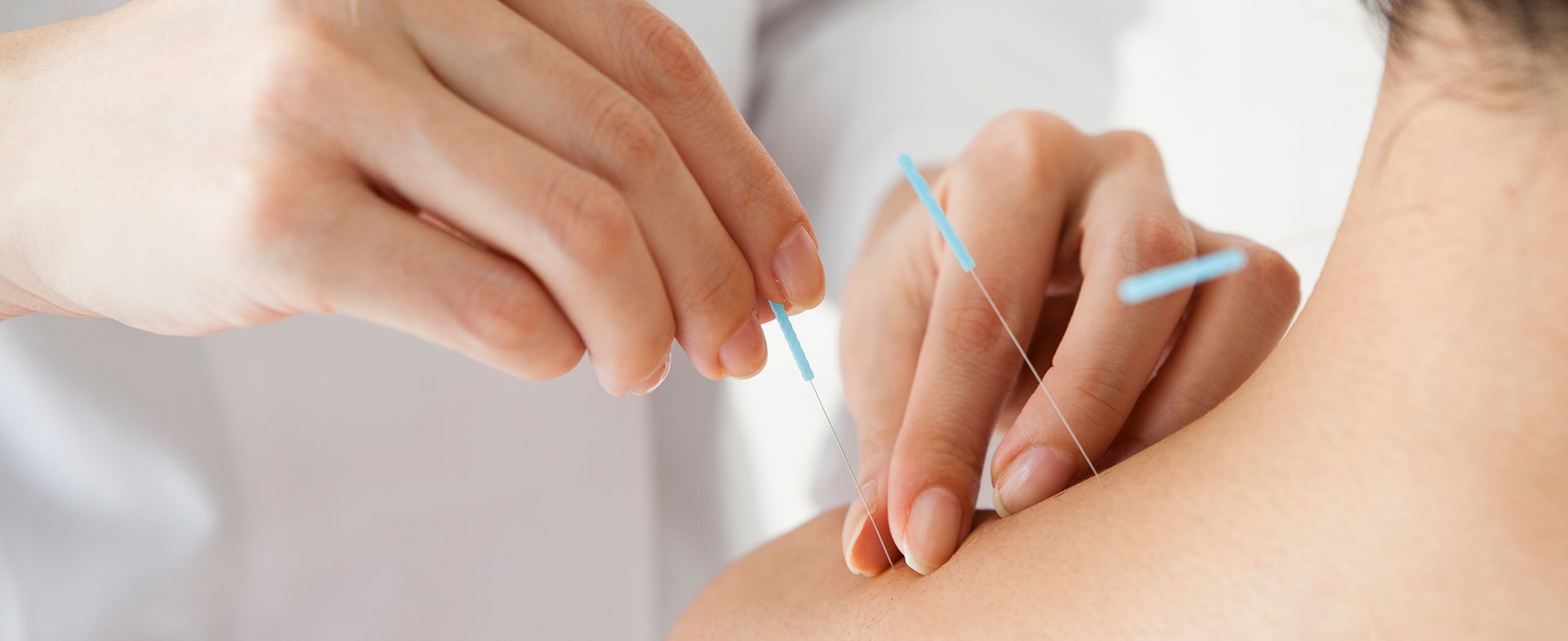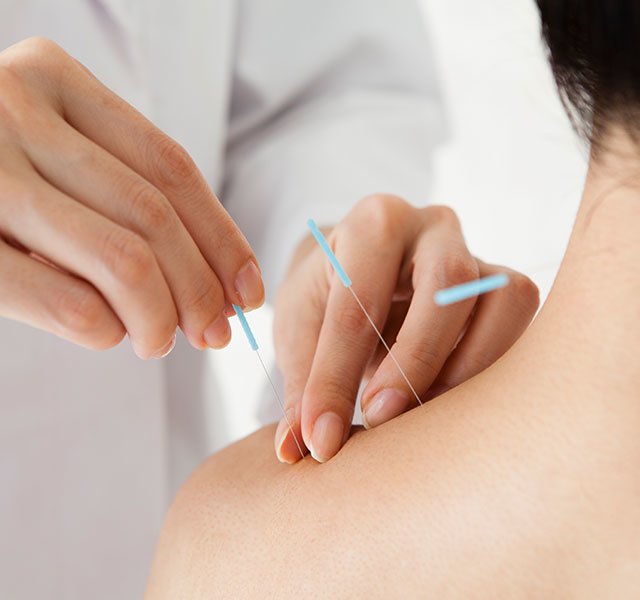With coronavirus cases continuing to make headlines, children and adults cohabitating 24/7 and the upcoming presidential election, a growing number of people are understandably anxious. While there are many ways to manage stress and anxiety, people are increasingly turning to acupuncture to calm frayed nerves.
"Acupuncture stimulates the body's natural feel-good hormones and reduces the level of stress hormones like cortisol," says Mathew Kulas, MA, RAc, an acupuncturist at Henry Ford Health. Studies show that acupuncture is an effective treatment for anxiety, with fewer side effects than medications. Perhaps the best news: You don't have to rely on weekly in-person sessions to get the benefits.
Homemade Acupuncture Strategies For Managing Anxiety
Acupuncture relies on stimulating specific points in the body, most often with needles, to improve health and well-being.
So how do you maintain those feel-good results in between sessions? "There are a number of things people can do at home to extend the benefits they achieve immediately after an acupuncture session," Kulas says. Here are six of his favorites:
- Pay attention to your diet: Diet plays a key role in maintaining the effects of acupuncture. Instead of leaving your session and noshing on pizza and beer, fuel up on a plant-based meal and drink plenty of water. Consider making an appointment with a plant-based nutritionist to help you learn how to incorporate more antioxidant- and nutrient-rich plants into your diet.
- Try ear seeds: An acupuncturist applies these small seeds to stimulate the pressure points in your ear and promote healthy energy flow in the body. Acupuncturists often use seeds when treating panic attacks or nicotine addiction. They can be helpful for issues like weight loss and pain management, too.
- Get moving: Movement is therapy. Techniques like yoga, tai chi and qigong can help you maintain balance in your body. You can find relevant videos on YouTube to walk you through a stress-reducing practice. It only takes a few minutes to stretch your whole body between tasks with a set of sun salutations or a simple child's pose. Or just lift your shoulders to your ears, hold, and release with a deep exhale.
- Breathe deeply: While many breathing exercises might help you relax, Kulas suggests keeping it simple. Try a four-breath cycle per minute to slow your breathing and reset your nervous system: Inhale for seven seconds, pause, then exhale for seven seconds.
- Self-massage: Self-massage can help alleviate mild to moderate pain in muscle and connective tissue. Acupressure is a form of massage that targets specific acupuncture points with pressure along with deep breathing. Self-acupressure can also treat psycho-emotional, gastrointestinal and neuropathic ailments. Ask your acupuncturist for customized acupressure point combinations for your specific health concerns.
- Maintain social connections: The pandemic has dramatically affected our ability to stay connected with friends and family. While you may need to maintain a safe physical distance between yourself and others, that doesn't mean your social connections need to take a hit. Do what you can to create feelings of connection with those living inside your own home. Try family yoga time, acupressure on each other or cooking a delicious plant-based meal.
Achieving Calm
Remaining calm right now may feel like a Herculean task. The key is to try to maintain some normalcy within the chaos.
"Often with anxiety, thoughts can become chaotic and there's a certain level of fear about the future," Kulas says. "Sometimes just knowing you're doing something productive — whether getting an acupuncture treatment, exercising or practicing self-massage — can help reduce worries about things that fall outside of your control."
Learn more about acupuncture and other integrative medicine services at Henry Ford. To find a doctor or acupuncturist at Henry Ford, visit henryford.com or call 1-800-HENRYFORD (436-7936).
If you are struggling with anxiety or depression and it's interfering with your life or ability to function, talk with your doctor or a behavioral health professional.
Mathew Kulas, RAc, is a licensed acupuncturist and sees patients at Henry Ford Medical Centers located in Northville and Grosse Pointe Farms.



